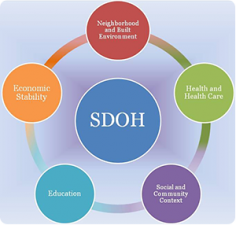Reduce Your Risk of Lyme Disease
May 20, 2015
The Onondaga County Health Department is encouraging all residents to take steps to reduce their risk of tick bites that may transmit Lyme disease. Indu Gupta, MD, MPH, Onondaga County Commissioner of Health, explained that, “Lyme disease is caused by a bacterium through the bite of an infected deer tick. An infected tick must be attached to the skin for 36 hours to transmit the bacterium.” Gupta said, “Taking preventive measures to avoid tick bites and if indicated, timely antibiotic use after a tick bite can reduce the risk of getting Lyme disease.”
The Health Department recommends the following measures to prevent transmission of Lyme disease:
In your yard:
- Keep ticks away by mowing your lawn often and remove brush. Stack wood neatly and in dry areas.
- Keep playground toys, decks, and patios away from wooded areas.
- Keep deer away by not feeding deer on your property, make a barrier to keep deer from going onto your yard, and get rid of plants that attract deer.
When outdoors:
- Wear light colored clothes, long pants, long sleeves, and socks. Tuck in your shirt and tuck pant legs into your boots or socks.
- Check for ticks after being outdoors, even when you are in your own yard.
- Bathe or shower (preferably within 2 hours) after coming indoors.
- Wash and dry clothing at a high temperature to kill any ticks that may remain on your clothing.
Use repellent when outdoors:
- Follow the label directions. Do not spray repellent in enclosed areas.
- Put a small amount of repellent on your hands and apply it to your child. Do not let children touch repellents. Repellents containing DEET should not be used on children under two months old.
- Use insect repellent containing a 20-30% concentration of DEET on clothes and on bare skin. Use just enough repellent to cover exposed skin.
- Do NOT use repellents containing permethrin directly on your skin.
- Do NOT spray repellent directly on your face, especially near the eyes or mouth. Apply a small amount of repellent near the ears. Do NOT use repellent on cuts, wounds, or on irritated skin.
- Wash your treated skin with soap and water after returning indoors. If you have a reaction to a repellent, wash the treated skin with soap and water right away and call your doctor.
Check for ticks:
- Do a full body tick check on yourself, your children, and your pets after being outdoors.
- Check your body for ticks especially your scalp, neck, armpits, groin, and ankles.
- Look carefully when checking for ticks because they can be as small as a poppy seed.
How to remove a tick:
- Take tweezers to the tick’s head or mouth, where it enters the skin.
- Pull the tick firmly up, in a steady motion, away from the skin.
- Clean the bite with soap and water, rubbing alcohol, or hydrogen peroxide.
- Keep a record of the date, time, and where you were bitten.
- Get rid of the tick by placing it in a container of rubbing alcohol.
For more information about tick removal visit: https://www.health.ny.gov/diseases/communicable/lyme/tickfree/
When to call your health care provider:
If you had a tick bite and develop any of the symptoms below:
- A skin rash known as “bulls eye” is commonly seen on thighs, groin, trunk, and armpits. It appears from 3-30 days with an average of 7 days. Other symptoms may include fever, fatigue, chills, headache, muscle and joint aches, and swollen lymph nodes.
- Serious long-term complications can range from arthritis; facial palsy, headache, meningitis, neuropathy, impaired memory; and heart rhythm irregularities.
For more information call the Onondaga County Health Department at 435-3280 or visit:
/health/lyme.html
https://www.health.ny.gov/diseases/communicable/lyme/
www.cdc.gov/lyme





